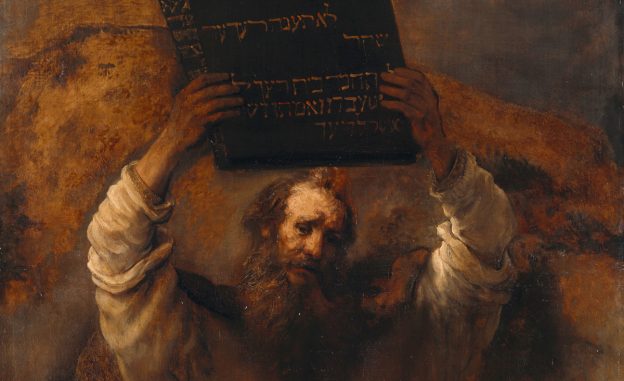Last year I saw a picture which stated “cattle on 1001st hill, owner unknown.” This joke refers to God describing how the cattle of a thousand hills belong to him (Psalm 50). Ultimately, everything belongs to God because he created it (Psalm 24:1) but he has granted to us the right to possess and enjoy it.
Since ultimately everything belongs to God and he dishes it out as he wills, God requires us to respect his division of material goods. The Eighth Commandment, which forbids stealing, demands that we respect what others have been given.
While we tend to think about this purely in relation to people taking our stuff, theft goes beyond “liberating” goods and money to the way in which we interact with each other and God, both as individuals and society.
Exodus 20:15 provides a straightforward statement commandment – “You shall not steal.” The simplest, and to us the most obvious prohibition here, is to take something that does not belong to us, whether it is money or possessions.
It is fundamentally wrong for me to walk onto your property and steal your car or your laptop, or to steal your wallet from your pocket. Euphemising it as a “five finger discount” might be humorous in abstract, but when it happens to you, it hurts. Most people know it is wrong by “nature;” that’s why we have laws against it. It disrupts the bonds of trust in a community.
However, the Commandment against stealing goes further than actively taking property. The word for steal also refers to taking through a breach of trust, or taking by deceit. The spam caller who deceives a vulnerable person into handing over their credit card details to fix a “Windows problem” is stealing. So too the person who takes a payment to provide a good or service, and then does not deliver. Or the person who receives a service, then refuses to pay.
Fraud is a form of theft. If I use my privileged position with my employer to divert cash to my bank account, I have defrauded my employer. It’s theft, and I can expect serious consequences from the Law, let alone from God. The employer who does not pay his staff’s wages, or pays them far less than agreed, is equally a thief.
Deliberately not paying your taxes is theft, as is deceiving the government by suggesting you have earnt less than you did. While I can’t agree with the political position that “taxation is theft”, it is certainly true that a government could use the state’s power to unjustly take property for themselves, or for a privileged group. In some times and places this has been and is the case.
Using positions of relative economic strength to steal from others also violates the spirit of the Eighth Commandment. Scripture encourages liberal giving and (interest free) lending to the poor, particularly amongst God’s people (Lev. 25:35-38). When we, or businesses, entrap the poor and vulnerable with lending which they cannot afford, or we take from them the necessities of life, we violate this commandment.
On the flip side, those taking well-intended gifts of money or possessions by deceit or borrowing without intending to pay back is also theft.
We can even steal from God. God complained in Malachi that his people withheld tithes they owed him, and encouraged them to give to him and experience the resulting blessings (whether spiritual or physical, Mal. 3:6-12). Achan (in Joshua 7) stole from God and paid the price.
Ultimately everything belongs to God, and we as believers ought to give cheerfully and sacrificially for his work and the poor (2 Cor. 9:7), not just of our possessions, but by devoting our lives as living sacrifices to God (Rom. 12:1).
When we deprive God of his due, or we take from others what belongs to them, we are declaring that we, not God, are better placed to determine what is owed to us. That we know better than God how his possessions should be distributed; primarily to us, not others!
The truth is, we are all in our own individual ways, thieves. We do not have to have a white striped suit on to be a thief, it is the actions and the intent of the heart that betray us. We may not have stolen a million dollars or a television, but we deprive each other of what we could give, in time, gifts, and out of the richness of possessions we have. We have all deceived for our gain and others’ loss. We all hold back from God what we should give to him.
Thankfully, while we all violate this commandment in our own way, Jesus was numbered with the transgressors, dying next to thieves (Matt. 27:38), so that we may be forgiven by God. Instead of bearing the punishment for our theft, we are freed to enjoy and be good stewards of the things God has given us; to help each other, to share generously with those in need, and to bring glory to God.

